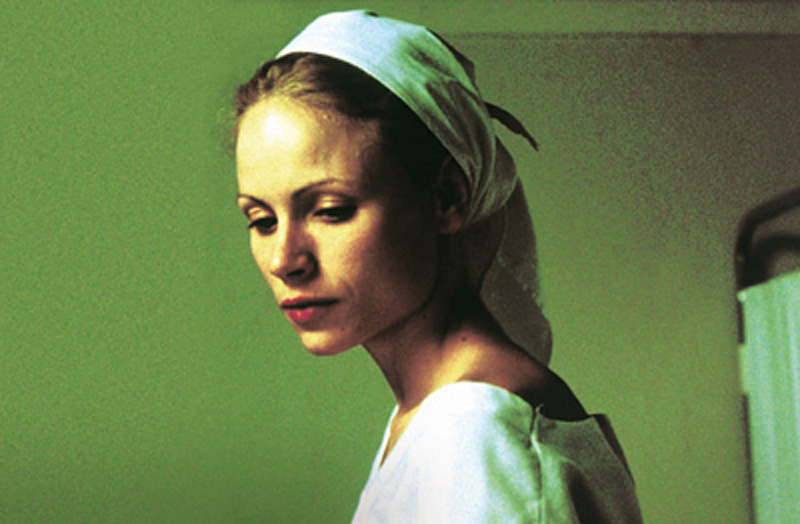More of an opera than a movie, this rather strange and daring Hungarian musical follows a street junkie into a hospital, where she provokes a rebellion between patients and doctors. Half-dead from a traffic accident, Johanna (Orsolya Tóth) is delivered into the greenish bowels of a ward that looks like a set from Children of Men. The staff navigates by flashlight, and the jittery camera follows careening gurneys down endless dank corridors. Yet somehow Johanna survives the ordeal, and when she wakes from a coma, she also bursts into song (soprano Eszter Wierdl supplies her singing voice; the score is by Zsófia Tallér). It’s a miracle! And this miraculous waif now has healing powers—or so some patients believe (particularly when she has sex with them). She’s both a mascot to the physicians, who informally adopt her, and a threat to their medical authority. At a certain point in Johanna, you begin to see its roots in Joan of Arc—a holy heroine whose leadership is both useful and dangerous to the establishment. This odd little 2005 film hasn’t previously enjoyed a U.S. release. McCaw Hall might be a better venue, but adventuresome opera fans should seek it out. Like the flickering lights at the failing hospital, the score has jagged Bartók rhythms suited to a troubled, modern world. “Come, tender vein,” sings Johanna, “let the needle find you.” It’s a smack aria.
Johanna: Joan of Arc as Hungarian Opera








